This story was originally published by Inside Climate News and appears here as part of the Climate Desk collaboration.
State of Denial: Fourth in a series about how Texas’ environmental regulators enable Big Oil and other polluters.
The prolific oil and gas wells of Texas also generate billions of gallons of salty liquid known as produced water. A lot of this toxic water, just like crude oil, tends to get spilled.
Not just occasionally, but hundreds of times a year. From a large spill of 756,000 gallons into the Delaware River in West Texas that sent chloride levels soaring, to hundreds of small spills in one Permian Basin county, there’s hardly a corner of Texas not impacted. But messy record-keeping and ambiguous rules at the Railroad Commission of Texas, which regulates oil and gas drilling, have long obscured the scope and severity of these spills from the public.
The Railroad Commission has never formally adopted 2009 draft guidelines for reporting and cleaning up produced water spills. The agency delegated the authority to set different reporting thresholds to district offices, in a system that relies on self-reporting by offenders and includes little enforcement to assure accuracy and compliance.
A commission spokesperson said that produced water spills must be reported and that the agency fully investigates and mitigates all spills. But the agency has never adopted official produced water spill guidelines and numerous companies are under the impression they are not required to report spills at all.
Over the decade from 2013 and 2022, the analysis found that oil and gas companies reported more than 10,000 individual spills totaling more than 148 million gallons of produced water. Where possible, companies use vacuum trucks to suck up as much spilled water as they can. But only about 40 percent of the water reported spilled from 2013 to 2022 was recovered.
The spills ranged from small leaks of less than 10 gallons to massive incidents — 19 of the reported spills exceeded 500,000 gallons. Although they represented a tiny minority of spills, with about 350 reported in the data, some of the most damaging incidents took place when produced water was spilled directly into streams, rivers or lakes.
Both conventional oil and gas drilling and hydraulic fracturing, or fracking, rely upon large quantities of water, sand and proprietary chemicals, some of which are toxic, to free the oil and gas from geologic formations deep underground. Produced water is the liquid waste that comes back to the surface and contains both the proprietary drilling fluids and naturally occurring hazardous compounds from the earth, including arsenic and organic compounds like benzene, a carcinogen.
The highly saline water can render land barren for years. Residents have filed lawsuits detailing damages from contaminated well water to poisoned cattle.
In East Texas’ Anderson County, cattle rancher Tate Willfong noticed a produced water spill on his property from Vista Energy Consulting’s pipeline in July that killed the grass his cattle graze on. He said he reported the spills to the Railroad Commission but only got help after he went to a local television reporter at KETK in Tyler. Vista Energy Consulting did not respond to a request for comment.
“I ain’t got a beef with the Railroad Commission at this time,” Willfong said. “But I didn’t get a lot out of them in the beginning.”
In Lamesa, the county seat of Dawson County in the high plains where Permian Basin oil production borders cotton farms and towering wind turbines, Doty Huff and Saul Torres filed a lawsuit against an energy firm named Enhanced Midstream, alleging that two leaks from one of the company’s produced water pipelines contaminated their well water and caused a “total loss of fair market value” of their property. Enhanced Midstream did not respond to multiple requests for comment.
In Knox County, North of Abilene, rancher Tim Foote sued after his cattle knocked down a fence around a Texcel Exploration tank where produced water and oil were stored. The livestock came into contact with spilled produced water and 132 cattle died. An appeals court recently upheld a trial court’s decision that the company cannot be held responsible.
“There’s a reason why you salted your enemy’s land in the Bible,” said Sarah Stogner, an oil and gas lawyer in the Permian Basin, who has documented damages from produced water spills. “Nothing grows.”

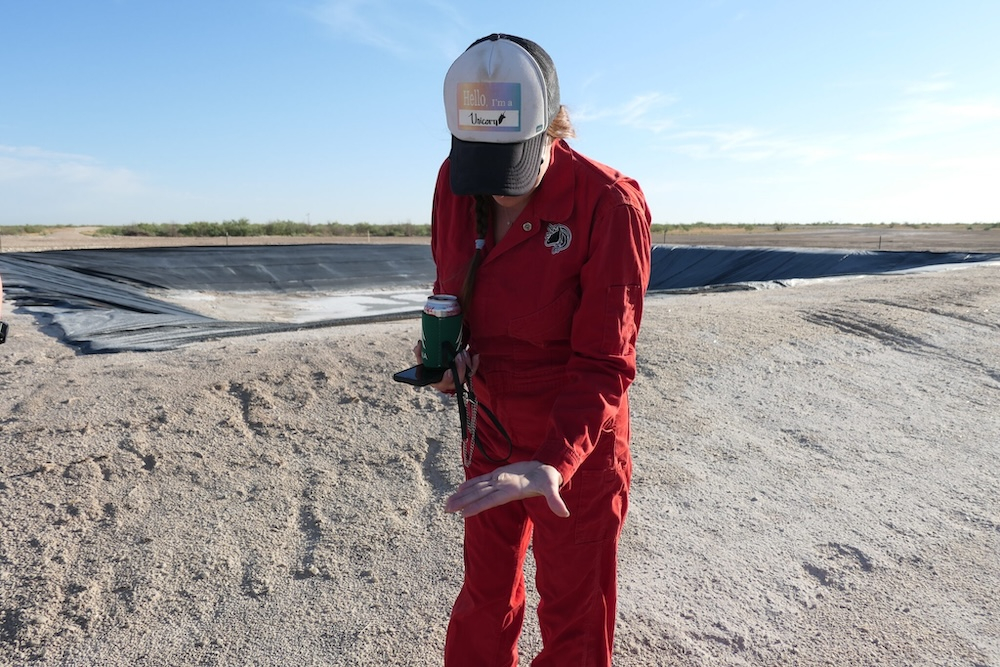
Spill logs reveal trends
The Railroad Commission records of these spills are not held in a database allowing easy analysis. Instead, they are recorded in chaotically-maintained spreadsheets called “spill logs.” Before running the analysis, Inside Climate News had to diagnose and fix various problems with the data, including inconsistent use of units, incorrectly entered dates, misaligned columns, duplicated entries, misspellings of company names and more.
The totals from the analysis are likely incomplete. Different district offices of the Railroad Commission ask companies to report spills at different thresholds, and the entire system depends on operators self-reporting their mishaps — with little enforcement to ensure that they do so consistently and accurately.
In addition to analyzing the central spill logs provided by the Railroad Commission, Inside Climate News obtained spill logs from its regional offices throughout the state. The analysis of these sprawling records, spread across more than 200 spreadsheet files, gave a similar overall picture but recorded almost 11 million additional gallons of spilled water.
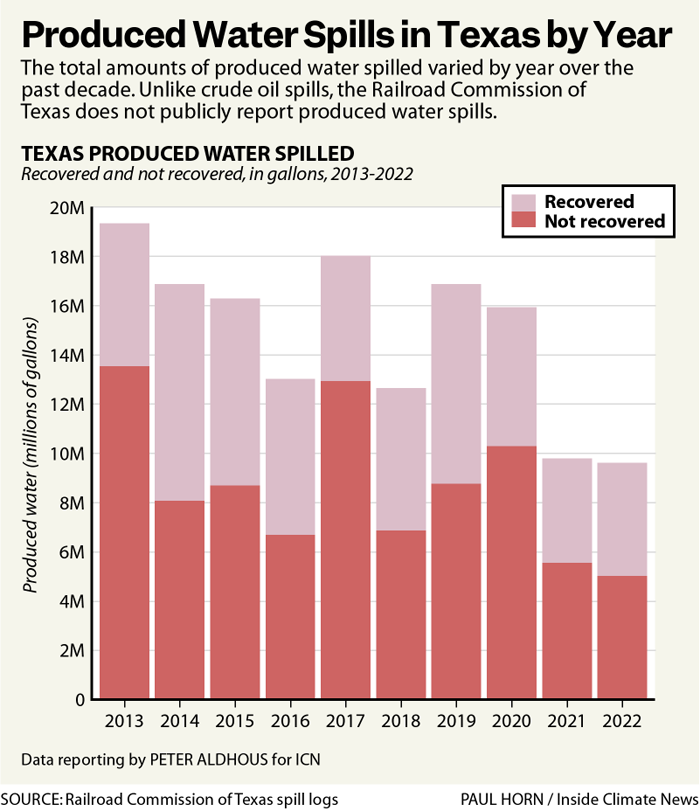
Further scrutiny of the differences between the central- and district-level records revealed several large spills of produced water recorded at the district level which were not found in the Railroad Commission’s central records. In some cases, this was because the corresponding central record had apparently not been updated from an initial entry. Others, including a spill of more than 500,000 gallons in November 2022 from a corroded pipe operated by Occidental Petroleum at a site in Gaines County, seemed to be missing from the central records altogether. Occidental did not respond to a request for comment.
“There have been different systems of tracking spills over time, so there could be differences if you’re comparing different logs,” a Railroad Commission spokesperson said.
Railroad Commission leaves spill rules vague
As hydraulic fracturing allowed Texas to rapidly increase oil production, vast amounts of produced water were also generated. But even as fracking transformed the oil and gas industry, the Railroad Commission did not adopt formal rules for reporting and remediation of produced water spills.
A 2022 report calculated that the Permian Basin alone is generating 3.9 billion barrels, or over 168 billion gallons, of produced water a year. That means wastewater must be piped off well pads, stored in tanks and trucked to disposal wells. At each step in the process, the risk of spills is present.
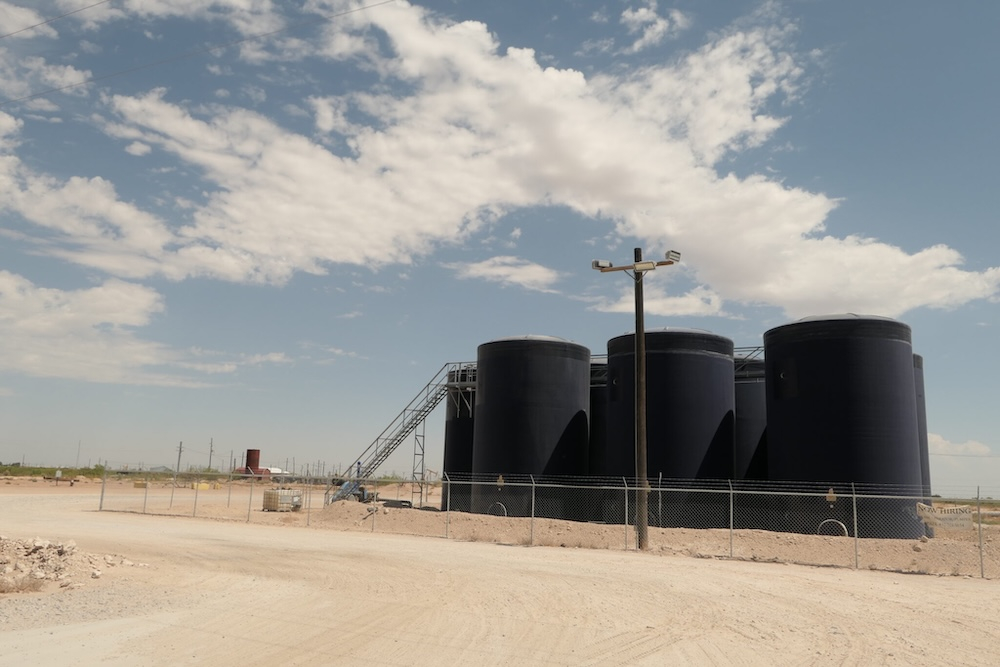
The Railroad Commission currently has 180 oil and gas inspectors statewide. As of July, Texas had over 161,000 oil wells and 86,000 gas wells in production.
The Railroad Commission’s Rule 3.20 requires oil and gas companies to immediately notify a district office after spills of oil or condensate, a low-density hydrocarbon liquid present in natural gas. Those spills are reported on a publicly available Railroad Commission form known as the H-8. Any crude oil spill of over 210 gallons, or five barrels, must be reported. State law prohibits pollution of above-ground or subterranean water.
The H-8 form does not include produced water spills. However, a Railroad Commission spokesperson told Inside Climate News that companies must report produced water spills.
The spokesperson said the commission issued 116 violations of Rule 3.20 during fiscal year 2022. However, Railroad Commission staff were not able to identify how many of these violations were for produced water spills as opposed to oil spills.
The commission drafted the guidelines for produced water spill cleanup in 2009 that were never formally adopted. The guidelines state that companies are not required to report produced water spills but are “encouraged” to do so, an apparent contradiction of the commission’s statement to Inside Climate News.
This ambiguity has bred confusion. A spokesperson for Apache, a Houston-based oil and gas company operating in the Permian Basin, said the Railroad Commission does not require reporting.
In an email exchange provided to Inside Climate News, a Chevron employee told a Crane County landowner who had complained to the company about a produced water spill on her ranch that the company was not required to report produced water spills. A Chevron spokesperson said the company’s policy is “to follow all RRC requirements for reporting spills, including produced water,” without elaborating.
According to the District 8 office in Midland, which covers the heart of the Permian Basin, companies only must report spills larger than 250 barrels (10,500 gallons) of produced water. But there are many smaller spills on the district spreadsheets, indicating companies may have their own internal standards.
Meanwhile, produced water is included in neighbouring New Mexico’s spills rule, which classifies spills of 25 barrels or more as major releases and spills between five and 25 barrels as minor releases. In New Mexico, both major and minor releases are prohibited and must be reported and remediated.
According to the conservation non-profit Center for Western Priorities, during 2022, operators in New Mexico reported 5,085,654 gallons (121,087 barrels) of produced water spills.
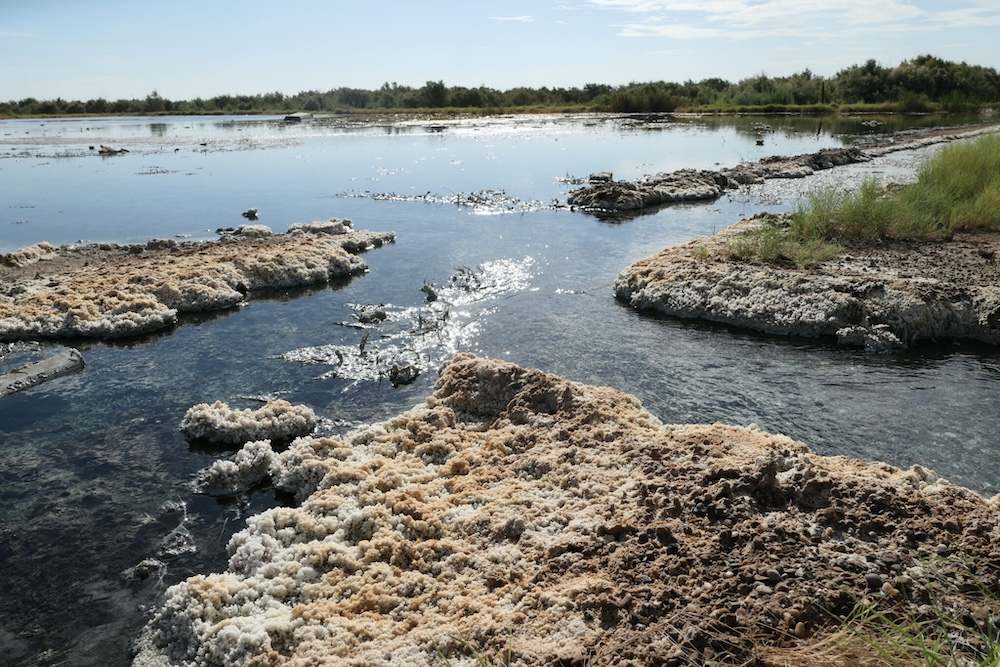
Produced water has bubbled up to the surface from an abandoned well near Imperial, Texas for years. Known as Lake Boehmer, the site is encrusted with salt crystals and high levels of hydrogen sulfide. Photo by Martha Pskowski/Inside Climate News
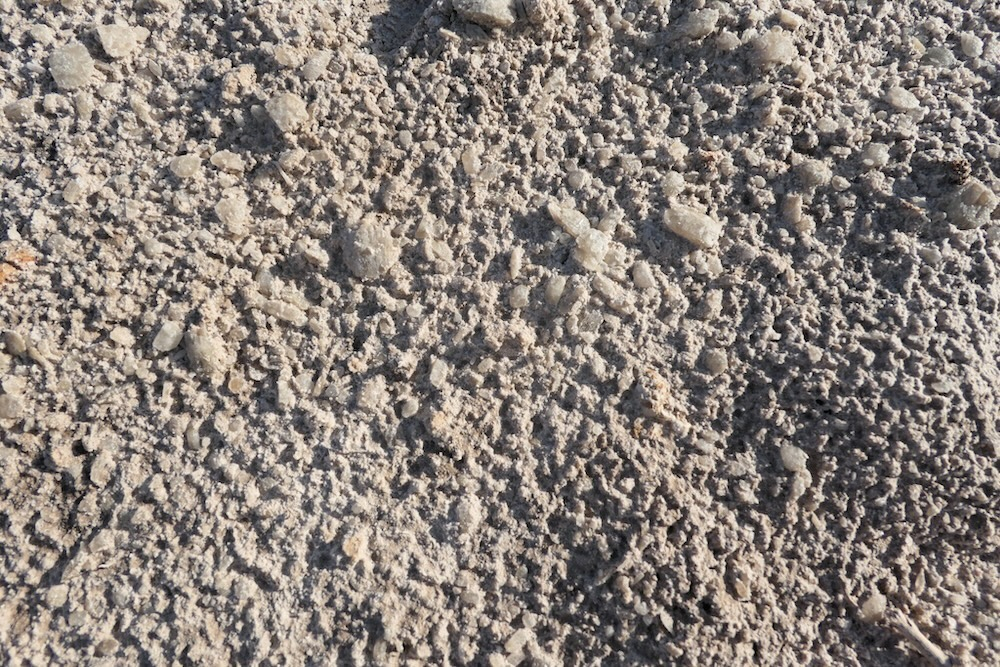
Company policies vary
Inside Climate News reached out to the 10 companies with the highest total volume of produced water spills with questions about their internal policies for reporting spills and remediation. Several of the companies have been sold since the spills occurred, in which case the new owners were contacted.
“Texas has robust reporting requirements and cleanup standards for spills that may incidentally occur during oil and gas production,” Permian Basin Petroleum Association president Ben Shepperd said in a statement. “Oil and gas operators in the Permian Basin each have best practices they follow for handling produced water.”
An Apache spokesperson said the company takes “strict measures to store and transport produced water in a manner that reduces the risk of impacts on soil, groundwater and surface water quality.”
The spokesperson said the company reports any spill larger than 100 barrels (4,200 gallons) that “breaches secondary containment or may be deemed sensitive.”
A spokesperson for ExxonMobil, in reference to its subsidiary XTO Energy, said the company complies “with the reporting requirements of the Texas Railroad Commission” but did not elaborate. The spokesperson said remediation depends on salinity and soil type.
Diamondback Energy, which is not on the top 10 list, but in 2019 acquired Energen, which appears on the list, is one of the few companies to include produced water spill data in its annual sustainability reports. According to the Midland-based company’s 2023 report, spills increased 67 per cent from 2021 to 2022.
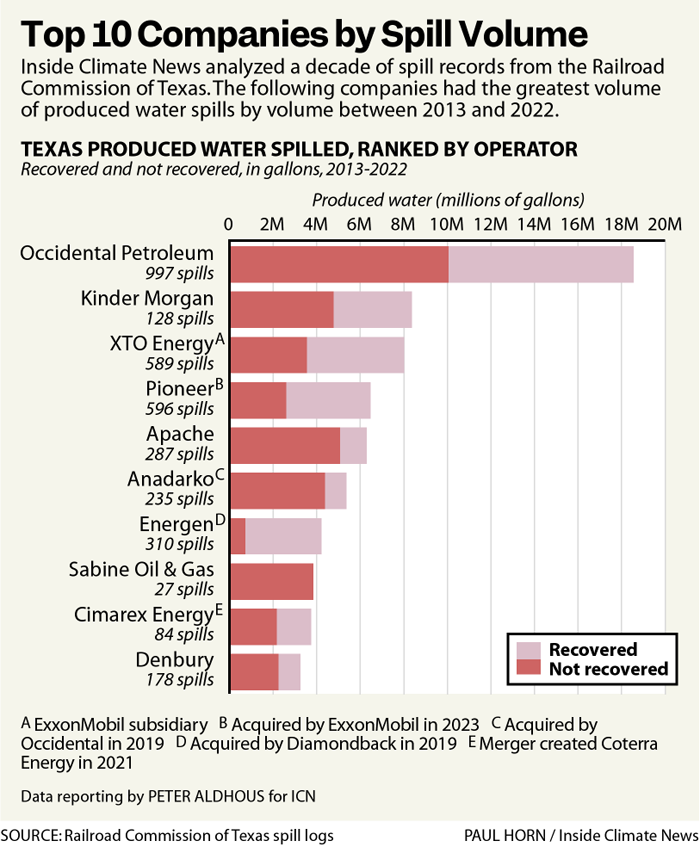
Ashley Watt, the owner of Antina Ranch in Crane County who complained to Chevron about a 2020 spill on her property that she said killed a number of mesquite trees, said oil and gas operators in the Permian Basin often fail to report spills to the Railroad Commission.
“I have never seen an operator self-report anything. Full stop, that’s it,” Watt said. “How many speeding tickets would be written if the only way that you got caught was self-reporting?”
Watt said her property alone has “hundreds of wells” and “hundreds of miles of flow lines,” which transport oil and gas. Watt said landowners, let alone inspectors, are unable to regularly check on every well or pipeline.
“It’s almost just luck when us or anyone catches a spill,” she said.
Watt said a Chevron representative eventually told her that produced water is not included in the Railroad Commission's “definition of spills required to give notice” and the company would not be reporting the spill to the Railroad Commission.
A Chevron representative declined to comment on the spill.
Railroad Commission spill response protocol
Although the Railroad Commission spokesperson told Inside Climate News that the agency requires remediation of all spills, records and interviews show that the commission only required cleanup after some spills, not all.
Apache reported that a storage tank spilled 77,500 barrels (3,255,000 gallons) of produced water on July 29, 2020 in Reeves County, about 10 miles north of Balmorhea, Texas.
According to documents provided in a records request, Railroad Commission inspectors visited the spill area, which covered approximately one-quarter mile by one-half mile, on July 29, Sept. 8 and Nov. 12, 2020. During each inspection, the RRC noted produced water pooled on the ground, heavy salt crystals and distressed vegetation.
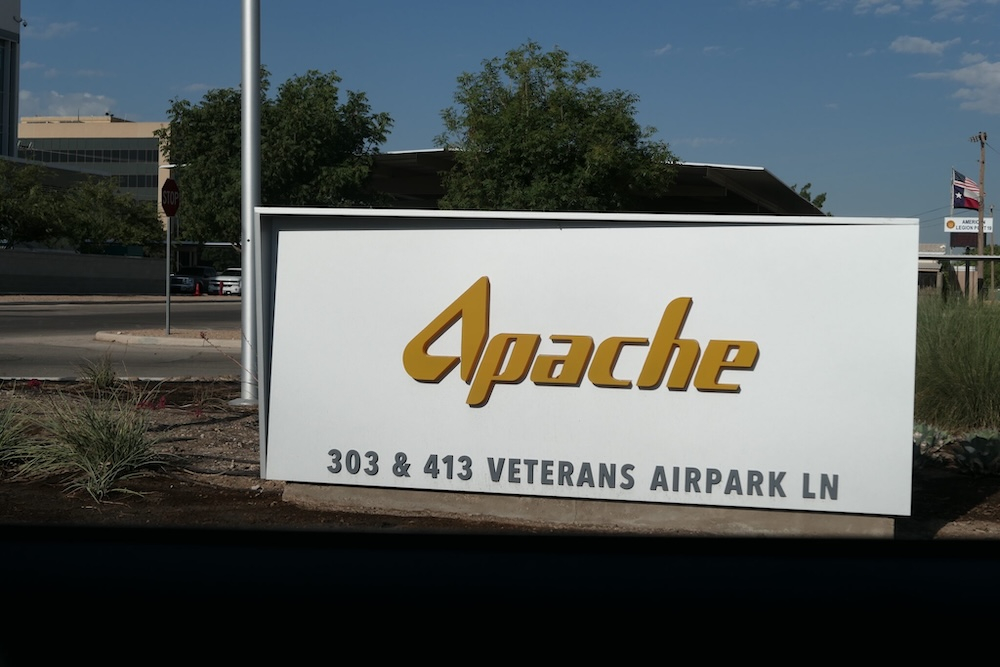
On Nov. 17, the Commission moved to sever Apache’s lease because the spill violated state rules. Apache contacted the Commission to appeal. On Jan. 26, 2021, District 8 Director Jeffery Morgan replied, siding with Apache.
“After further review, no further action will be needed for this site at this time,” Morgan wrote.
Apache kept the lease. The Railroad Commission did not require remediation or issue any penalties.
An Apache spokesperson said regulators and the company agreed that it would be “more harmful” to dig up the soil instead of allowing rainfall to dilute the produced water.
The Commission spokesperson said companies are required to remove as much of the liquid as possible after spills and in some cases remove the contaminated soil. But experts said the agency should take a more holistic approach to remediation.
In the case of the 756,000-gallon spill from a flow line into the Delaware River in West Texas, the Railroad Commission’s Midland District Office was notified immediately on Aug. 1, 2017, but took a back seat to other agencies in monitoring potential pollution.
The event occurred after a Cimarex Energy saltwater disposal unit in Culberson County lost power during a rainstorm. Roughly 18,000 barrels of produced water — or 756,000 gallons, more than enough to fill an Olympic-sized swimming pool — spilled from the flow line into the Delaware River, in addition to 420 gallons of oil. The river is home to the endangered Texas hornshell mussel.
The produced water had chloride levels between 80,000 and 100,000 parts per million. The EPA recommends drinking water not exceed 250 parts per million.
On Aug. 4, a staff member at the Texas Commission on Environmental Quality emailed a colleague after a counterpart in New Mexico had told her about the spill. “Did they notify y’all about this?” she asked. “We obviously have concerns. Do we have anyone checking this out?”
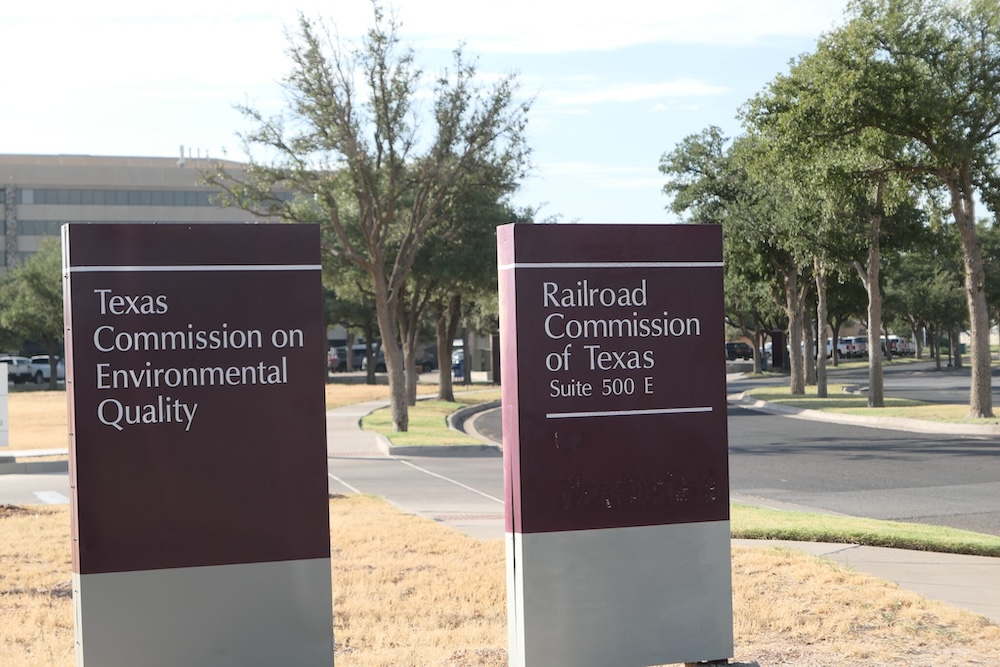
On Aug. 5, the Texas Parks and Wildlife Department documented a fish kill in the Delaware River, including minnows, perch and carp. A Railroad Commission inspector, Glenn Gainey, visited the site on Aug. 7 and district engineering specialist Wade Goode met with company executives two days later.
“I had a meeting with Cimarex representatives to discuss the progress on the remediation, the plan going forward, and to get water sample test results,” Goode wrote in an inspection update. “Cimarex informed me the booms they deployed have not seen any oil sheen.”
The Environmental Protection Agency sent its inspectors on Aug. 9. By Sept. 21, the company seemed to think remediation was wrapping up.
“We conducted a flyover this past Thursday and since we are not observing any sheening or negative impacts to the river or surrounding shoreline, Cimarex will be discontinuing this operation,” a Cimarex supervisor wrote.
The EPA disagreed. The agency’s Region 6, which covers Texas and New Mexico, eventually issued a consent agreement requiring Cimarex to pay a $13,220 penalty and continue water testing for three years on a 40-mile section of the Delaware River.
Cimarex Energy has since merged with Cabot Oil & Gas to create Coterra Energy, which did not respond to a request for comment.
The involvement of EPA, TCEQ and other agencies in the Cimarex spill was, in many ways, atypical. For most produced water spills, the Railroad Commission acts on its own. A TCEQ spokesperson said while the Railroad Commission has jurisdiction over produced water spills, the TCEQ may initially respond to reports of spills.
A spokesperson for EPA Region 6 said the Railroad Commission is not required to notify federal officials about produced water spills, unlike crude oil spills over a certain size.
The Railroad Commission’s 2009 draft guidelines for cleaning up produced water spills focus on reducing chloride levels in soil and identifying potential groundwater contamination. The guidelines also recommend testing for additional contaminants, including benzene, toluene and metals in some cases.
Stogner, the attorney, said in practice, many companies in the Permian Basin simply remove the soil and replace it with caliche, a sedimentary rock common in the area. She said the remediated areas are unfit for any other productive use like agriculture. Stogner is running against incumbent Railroad Commission Chair Christi Craddick as a member of the Forward Party. In 2022, she unsuccessfully challenged Commissioner Wayne Christian.
John Lacik has used his proprietary soil amendment for produced water spills on sites from North Dakota to Louisiana. He advocates for remediating the soil onsite, instead of trucking in soil or rock. Lacik, who now owns the Texas-based remediation company Gromega LLC, said chloride shouldn’t be the only constituent considered in remediation.
“Treatment types have to be based and determined on each site,” Lacik said. “If there was a cure-all fix, we’d be using it everywhere.”
Experts agree the problem of salty-produced water spills in Texas isn’t going away any time soon. But Lacik said there are solutions for those willing to look for them.
“Maybe I’m just a dreamer on this,” Lacik said. “But the good Lord only made so much land. What is the cost limit to restore land so that it will be productive again?”
This is what happens when you
This is what happens when you let republicans or conservatives in any state or province where oil & gas operates. They are more interested in their own personal wealth than the people who live in the state or province. The USA has Texas, in Canada we have Alberta, where oil & gas who are raping and pillaging the land that future generations will pay the price to clean up and resulting health related issues. It's criminal!

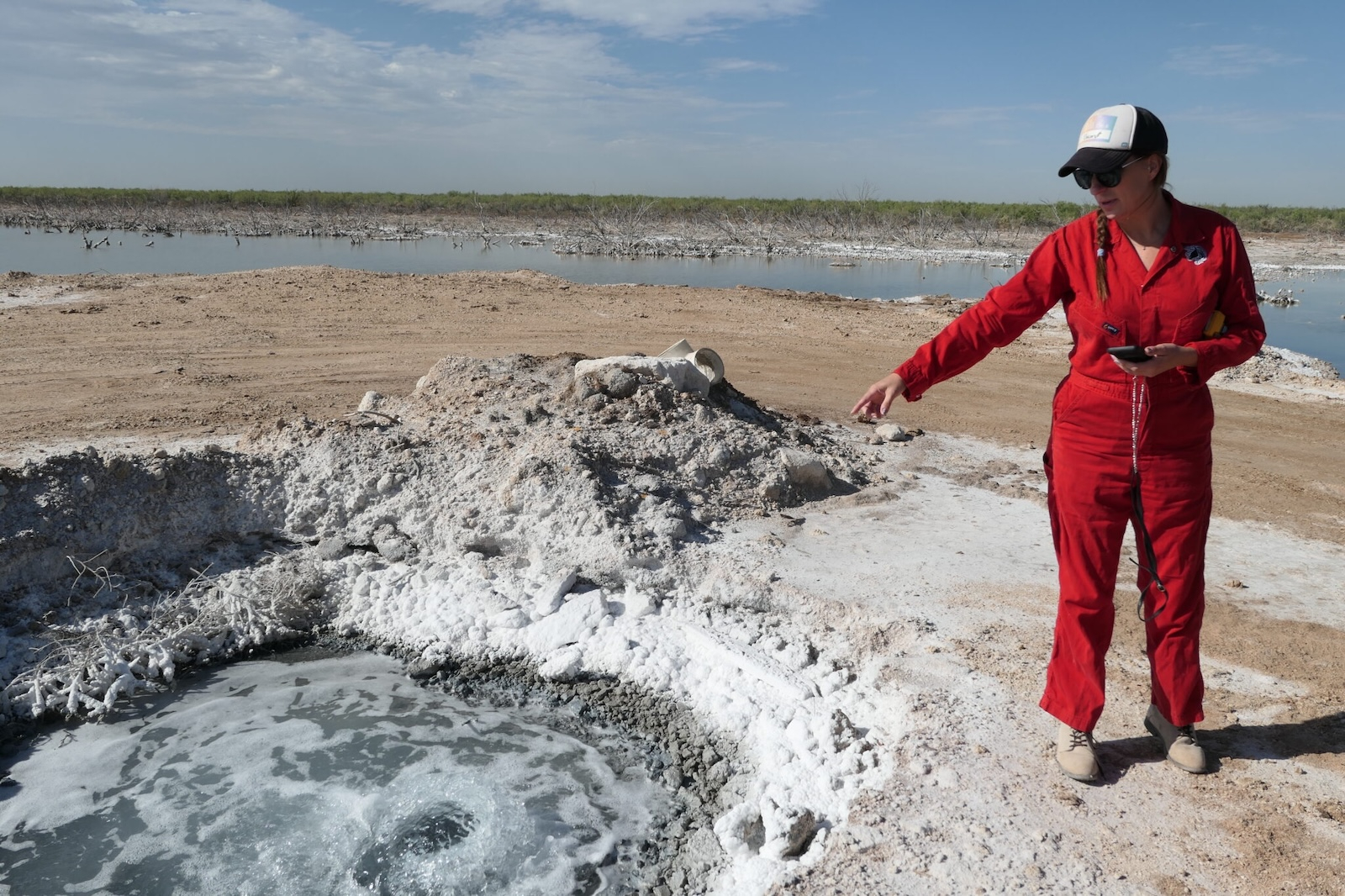




Comments